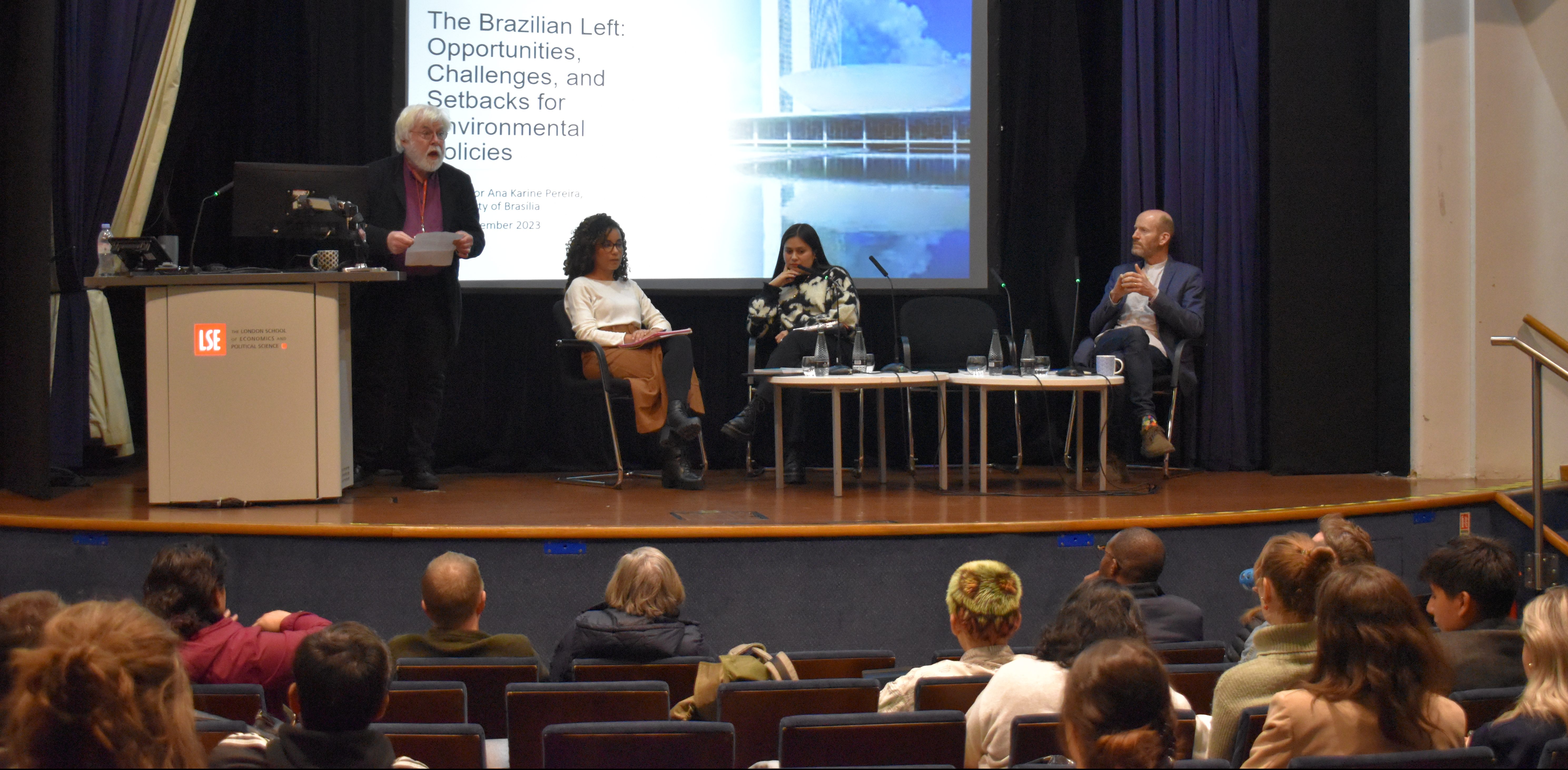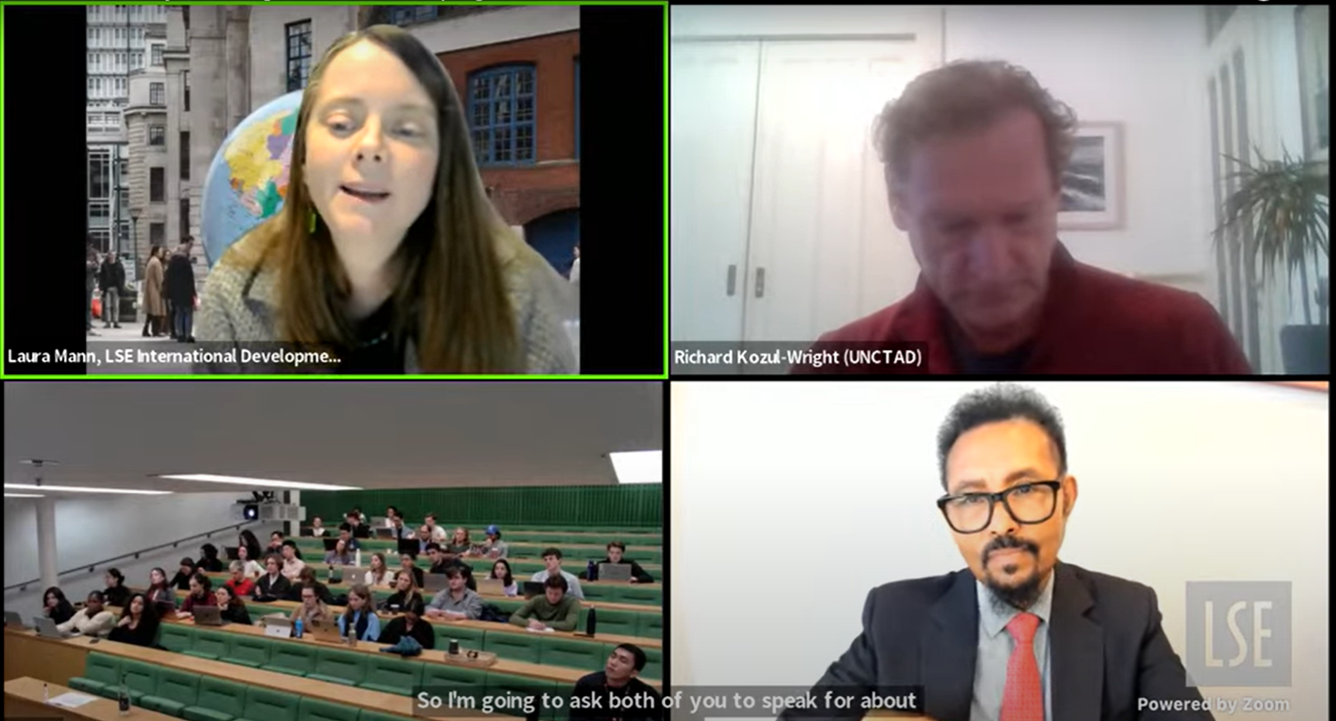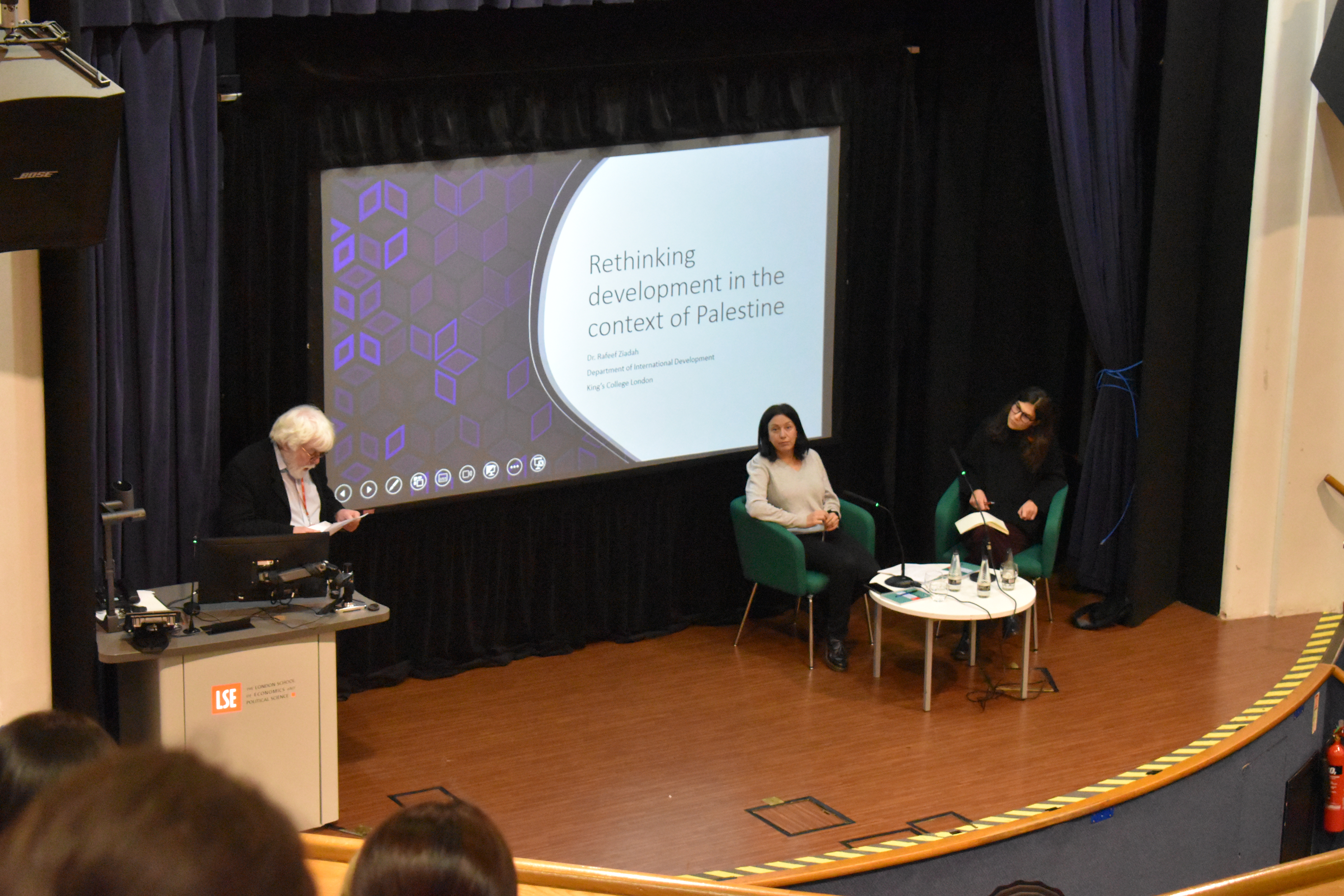On Friday 20 October, Rochelle Burgess gave a lecture entitled ‘In search of repair: The necessity of community development to mental health improvements in contexts of adversity’ as part of the Cutting Edge Issues in Development Lecture Series for 2023/24. The discussant for this lecture was Philipa Mladovsky. Read what MSc students Francesca Romana Miti and Allegra Chan took away from the lecture below.
You can watch the lecture back on YouTube or listen to the podcast.
The first female speaker of this year’s Cutting Edge Issues is an active and resourceful Professor, activist and researcher: Rochelle A Burgess. One of the prominent figures in the still developing terrain of social interventions with regards to Global Mental Health. She has realized multiple community-based projects, expanding the understanding of such realities, the importance of a shared experience, and how to build a conscience based on their diverse facets. Indeed, that was one of revolving focuses of her speech, enriched by the case study of her community-led project in Caquetà, Colombia.
She expanded on the concepts of adversity, repair, remedy, as well as the unintended consequences of mainstream provision of services, ending with a focus on community-based approaches. Such topics have required the audience not to passively listen to her words, but to actively engage with the discourse, opening, even inside of themselves, the possibility for new visions and dialogues that challenge the established ones.
Indeed, Rochelle invited the students to ponder about the meaning, and significance, of complexity; to reflect on how every single human is not one entity, but the result of an interweaving of realities, some coming from long ago, some developing just now. This, in her opinion, must be the starting point of every approach, in order to avoid oversimplifying and ignoring the roots of issues. To reconcile the direction that policies take with the demands of the people, and gift them with an audible voice.
Displaying captivating graphics alongside her talking, she gave concrete examples of the elements that coordinate in individuals’ experiences of suffering. For instance, colonial knowledge, still foundational for contemporary social practices, builds upon the concepts of Ageism and Ableism, Class and Working conditions, as well as Gender-, Race- and Caste- based Discriminations, Neighbourhood and Political Dynamics. The same reality can be seen and interpreted through each of this lens, that feed on each other and build a complex reality. Neglecting them prevents social workers from delivering effective remedies.
But her appeal has been particularly powerful thanks to the universality of her teachings. She reminded everyone, not only the ones interested in mental global health, about the importance of approaching others with carefulness and consciousness about the roots of their identity. Only remembering about the responsibility carried when interacting with others’ suffering it is possible to render them justice, taking a step closer to their point of view.
Ultimately, her contribution leaves us with hope, as, like S. Hartman’s book Wayward Lives, Beautiful Experiments suggests, even amongst all the inherited violence of the status quo, there is always a possibility to rebuild different realities. To never forget about this glimmer of light is the key to effective treatments and enhancements of people’s lives.
Francesca Romana Miti
“You can’t keep asking people to work in broken systems.” This statement from Dr Rochelle Burgess encapsulated a pressing sentiment in last Friday’s Cutting-Edge Lecture – the frustration for our broken, unequal health systems, the need for systems that would recognise the strain that places on patients and health care providers alike, and the need for change.
Dr Burgess is a critical voice for that change in the sphere of mental health – a radical, in Dr Philipa Mladovsky’s reckoning, though Dr Burgess rejected this portrayal. She isn’t condemning the entire mental health system. Flawed as it is, some of us still manage to find repair – restoring wholeness in our lives – through it. It still works for some; just not for all. Therein is one of the many inequalities of the system: we lack choice in our paths to repair.
One way Dr Burgess seeks to rectify this is through community-led interventions in mental health. Through Participatory Action Research in Caquetá, Columbia, she worked with communities recognised as victims of armed conflict to evaluate the potential of community-led interventions to mental health. Many community members had been former guerrilla fighters. For these communities, adversity has been chronic – they have suffered poverty, violence, and long-term conflict, and that would have had long-term impacts on their mental health.
Amongst them, there was a distrust of mental health services. Much of mental health is about prevention and treatment targeting the individual, usually involving a standard diagnostic tool like the DSM-5. Rather than keeping to classic interventions, Dr Burgess took the community as the site of mental health, not the individual. Drawing on their experiences and knowledge, the communities themselves developed a variety of interventions: how to restore intergenerational dialogue; to improve access to education; to evaluate a paradigm on living within the community.
The results were hopeful: given a space to repair in a way that suited them, the mental health and wellbeing of participants improved significantly, and they believed in the longevity of the interventions’ impact.
Hence, the dream is to reorient to community-led approaches in mental health, where the power lies with the community to co-produce interventions. Too often in global health, we see the shortfalls that come from failing to consult the ones that are suffering. That’s something that must change. Dr Burgess is pragmatic, but in striving towards a dream, you’re bound to land somewhere closer to it.
Allegra Chan
The views expressed in this post are those of the author and in no way reflect those of the International Development LSE blog or the London School of Economics and Political Science.





